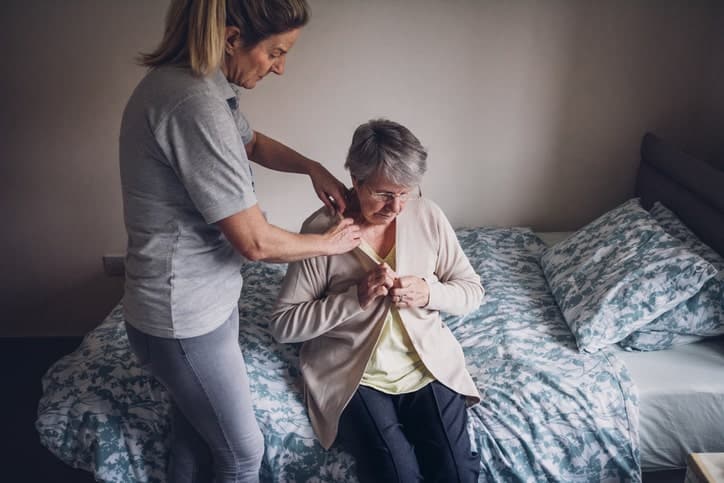How to tell if your senior parent needs help

Many of our senior parents live independently and have healthy and full lives. It’s normal to worry about our parents as they age, and if you suspect your parent might need some help at home, it may be time to have a conversation with them. While senior parents can be notoriously resistant to accepting that they need some help, there may come a point when it’s necessary for their safety, their health, and for the whole family’s peace of mind.
Signs a Senior Needs Help at Home
Our team at UMC has put together this guide to help you determine if your parent may need home care services. Please contact us if you have any questions or need assistance.
Difficulty Performing Activities of Daily Living
If you notice that your parent is starting to have trouble with daily activities like cooking, getting dressed, showering, using the bathroom, and even getting around from room to room, it may be time to talk to them about home care. People often think that home care is only for people who are seriously ill or incapacitated, but many seniors have home care help for daily activities.
Changes in Physical Function and Appearance
These changes include things like wearing dirty or stained clothing, weight loss from not eating properly or frequently enough, dirty or messy hair, untrimmed nails, a noticeable odor from not showering frequently, and bruises or scratches from falling or bumping into things. Pay close attention to your parent’s physical appearance and overall hygiene when you visit with them because these are often indicators that they are struggling at home.
Changes in Behavior and Mental Status
If your senior parent has a full social life with many hobbies and interests, be on the lookout for any changes that may indicate their mental health is struggling. Things like failing to return your phone calls and text messages, a loss of interest in their hobbies, and no longer seeing their friends regularly may be red flags. We all go through mental health challenges in our lives and your senior parent may need some help.
Neglecting Household Responsibilities
Keeping your house running involves a lot of responsibilities: paying the bills, cooking, cleaning, laundry, and keeping up with any other household repairs and maintenance. If you visit your parent’s home and notice anything out of the ordinary, like a pile of dishes in the sink, a stack of unpaid or unopened bills, or that their prescription medications haven’t been refilled, it’s time to have a conversation with them. You’ll need to learn more about what they’re struggling with to identify the areas family and home health aides can assist with.n.
What happens next?
While it’s never an easy conversation to have, discussing home help with your senior parent is essential for their health, safety, and overall well-being. You can expect them to be resistant to the idea at first, but start the conversation sooner rather than later, and take the time to really listen to your parent and understand their concerns.
Home health aides can greatly enrich your parent’s quality of life, and you’ll have peace of mind knowing that they are being cared for when you’re not able to be there. Keeping a clean and orderly home, staying on top of prescription medications, and regular assistance with things like shopping and cooking can go a long way in improving one’s mental health and minimizing physical safety risks.
If you’d like more information about caring for your senior parent, or if you have any questions about in-home companions and aides, please contact our team at UMC today. We look forward to hearing from you!




